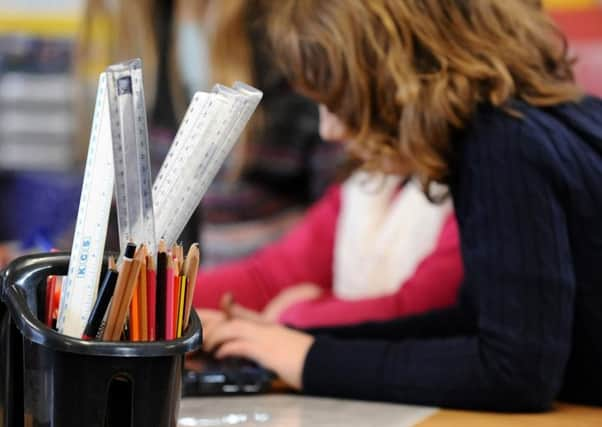Jayne Dowle: How education fails even when it ticks all the boxes


The demands of the school curriculum and the obsession with recording scores and information about pupil progress, subject achievements, league tables and all the rest has reduced many of our teachers to little more than input clerks.
If this sounds like a harsh indictment of the rigorous reforms introduced by Michael Gove, the former education secretary, you should hear what Amanda Spielman, Ofsted’s chief inspector, has had to say.
Advertisement
Hide AdAdvertisement
Hide AdIn a hard-hitting speech to school leaders last week, she told her audience that concentrating on exam performance “has increased the pressure on school leaders, teachers and indirectly on pupils to deliver perfect data above all else.”
This must change, she said. The new Ofsted inspection framework will concentrate less on exam results, progress markers and outcomes and more on ensuring that schools provide a balanced curriculum and improve pupil behaviour.
Teachers, already under pressure from all sides, must be thinking ‘what next?’. However, this approach surely has to be more rewarding than the current regime. I once actually walked out of a parents’ evening at my daughter’s primary school because her teacher couldn’t tell me anything about what Lizzie was like in class. All I got was a string of numbers relating to the scores she was achieving in tests.
Perfect data, in other words.
Advertisement
Hide AdAdvertisement
Hide AdThe teacher’s charts and columns were very neat, but I was so dismayed I cut short the appointment. It wasn’t her fault. She was only doing her job, and clearly doing it under pressure. It was the sheer inhumanity of reducing an eight-year-old girl to a sheet of figures that absolutely galled me.
Didn’t anyone notice that Lizzie loved to dance and sing and was blessed with the loveliest of imaginations? What must her days be like in that classroom, rote-learning times tables and spellings with never a moment to gaze out of the window and daydream up a poem?
Some might say it paid off; she left primary school with excellent SATs results. However, like many of her classmates, she also graduated with an unhealthy obsession with statistics. I’ve never bought into it myself. When parents got together and started trotting out the targets their children were expected to reach, I would pretend that something of vital importance had come up on my phone and ignore them.
More seriously, this culture has turned diligent children into risk-averse teenagers too afraid to colour outside the lines in all aspects of life. I don’t think that this is ‘the outcome’ we really want is it? Especially as so many jobs of the future will require lateral thinking.
Advertisement
Hide AdAdvertisement
Hide AdThe irony is we’re sending our children out into a hyper-connected world, yet we’re educating them in the narrowest possible way.
I remember one secondary school we visited when Lizzie was in Year Six. The ‘executive head’ barely mentioned pupils at all. Rather, they were represented in columns of achievement on the presentation he droned through. All that hope, potential and sheer youthful exuberance, nailed down in colours of green, red and blue. My heart sank.
Like many parents, I would like to see far more emphasis on creative and analytical thinking. While I respect the need to instil the fundamentals of maths and science, I am sure that there is scope within a responsive curriculum to foster a much broader approach to learning.
Having witnessed my son, who is now at college, study for his GCSEs, I think that the strict delineation of subjects runs counter to today’s thought processes. We shouldn’t just be thinking in terms of creative and ‘arty’ subjects versus the sciences and maths. We should be synthesising; allowing pupils to make connections between geography and physics or using foreign languages to explore historical events.
Advertisement
Hide AdAdvertisement
Hide AdAlso, we’ve got to face the fact that in coming years, schools and colleges will have an increasingly important role to play in preparing young people for work. If trends continue, fewer will continue their education by studying for a degree.
University applications were down by two per cent last autumn, according to figures produced by the Universities and Colleges Admissions Service (Ucas). The cost of a university education has become a major barrier.
Added to this are the proliferation of unconditional offers from universities desperate to fill their courses and the perception that so many degrees actually have no currency or relevance in the real world.
And what we are looking at is an education system adrift. It won’t be rectified by data collection, but it could be transformed by a philosophy which begins to join up some dots.